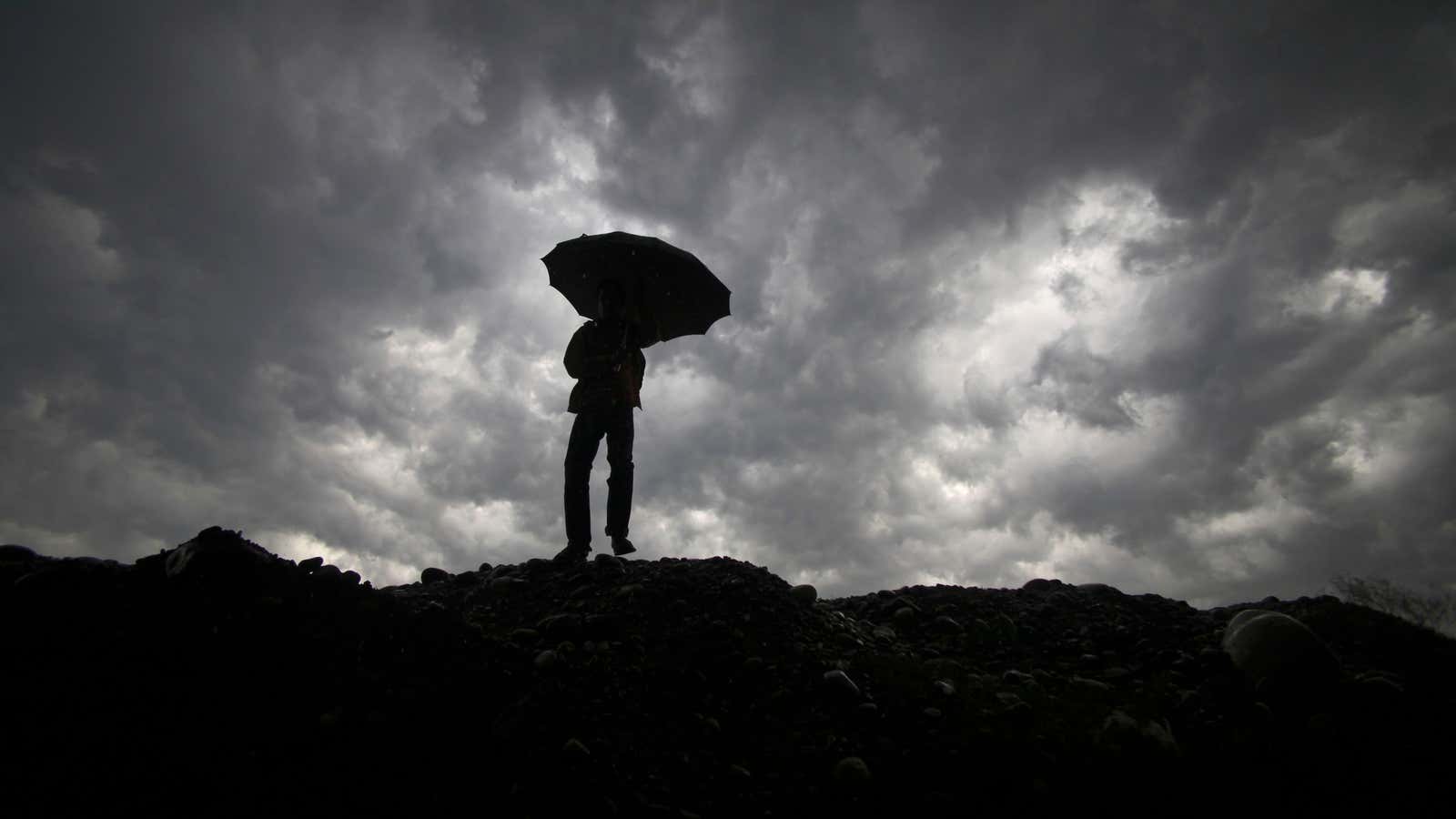If your only goal is increasing the amount of food crops you can grow, argues Harvard engineering professor David Keith, the way to go about it is to continue to pump greenhouse gases into the planet’s atmosphere while simultaneously neutralizing their effects with a giant sunshade made out of sulfuric acid.
“But you couldn’t hire me to do it,” Keith said in a talk at MIT’s Emerging Technologies conference today.
Keith is a realist. The starting point of his hypothetical schemes for engineering Earth’s climate—a field known as geo-engineering—is that there is precious little we can do to shape the short- and even medium-term temperature of our planet simply by moving to cleaner forms of fuel. For the long term, doing so is essential; but it will also take a long time to be effective. ”Nothing we do to reduce [greenhouse gas] emissions over the next third to half a century will have a substantial impact, because of the enormous amount of inertia in the system,” said Keith. In the meantime, though, we need something that acts faster—a “band aid”, as he calls it, that can buy us more time until we completely de-carbonize our energy system.
One such band-aid is to pump sulfuric acid into Earth’s upper atmosphere. There it would act as a shade by reflecting sunlight back into space. It would have to cut the light reaching Earth by about 1% in order to cancel out the extra heat our greenhouse gases are trapping. That should require about 1 million tons (900,000 tonnes) of sulfur each year, which could be delivered to the stratosphere by a fleet of 50 specialized planes, at a cost of about $1 billion a year. ”This is so cheap and easy to do that essentially any country could do it,” said Keith.
From this comes his daring idea about crops. Since shading the sun doesn’t remove any greenhouse gases from the atmosphere, why not try to make use of that greenhouse effect? Keith argued that in a future world with more carbon dioxide in the atmosphere, climate models suggest that adding the right amount of sulfur to the upper atmosphere wouldn’t just cool the planet, but would actually increase rainfall in, for example, India.
The science of this is controversial. Alan Robock, a professor at Rutgers and critic of geoengineering (pdf), found through climate modeling that attempts to cool the planet to the temperature it was at before industrialization could reduce the seasonal rains upon which India’s farmers—and therefore her billion citizens—depend. Keith, however, believes that at the right temperature, “it would increase yields by 20%.” The key, he said, is manipulating Earth’s atmosphere the right amount—blocking too much of the sun could be as dangerous as continuing to let the planet warm.
But even setting aside the technical challenges, and unpredictable effects, of cooling the Earth with a vast umbrella of sulfur particles, terraforming our home world could create a small problem of international governance. ”Let’s say China were worried about a weakening monsoon,” said Keith. (Archaeological evidence suggests reduced rainfall and resulting hunger has caused the collapse of Chinese governments in centuries past.) If China were to embark on a program of geo-engineering, it could achieve a good result for itself, but possibly at the expense of India. ”These are two nuclear armed states essentially arguing over how to set the thermostat,” said Keith. “We don’t even have the beginning of a way to resolve that dispute.”
